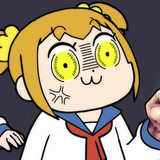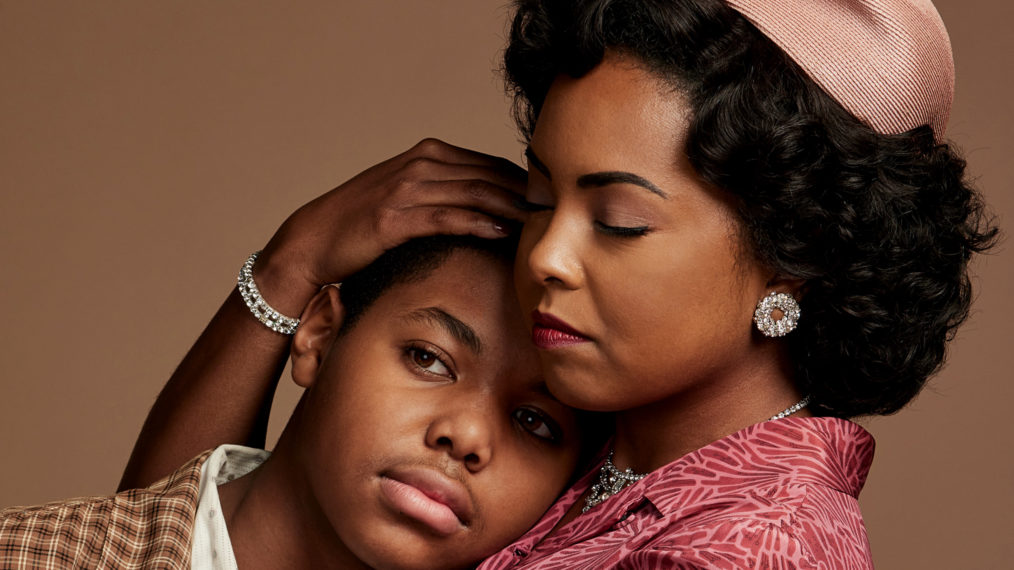#OPINION: How Dragon Quest: The Adventure of Dai Became One Of 2020's Best Surprises

“#OPINION: How Dragon Quest: The Adventure of Dai Became One Of 2020's Best Surprises”
Dragon Quest: The Adventure of Dai does not reinvent the Dragon Quest wheel. And you can’t really expect it to. The game series itself is steeped in a blend of nostalgia and tradition, remaining pleasant to this day because the kinds of things it does repeatedly, it often does really well. Dragon Quest: The Adventure of Dai, based on the 1989 manga series, follows suit. If you like what Dragon Quest brings to the table, you’ll probably enjoy The Adventure of Dai.
This does not stop it from being surprising and even refreshing at points. The series director Kazuya Karasawa (who previously worked as a director for Dragon Ball Super) and writer Katsuhiko Chiba give everything a distinct, welcoming sense of energy. The world, full of magical beasts and beings, does not offer an ounce of thought toward explaining itself and its mechanisms. Instead, it remains lush because it has the quality of feeling alive.
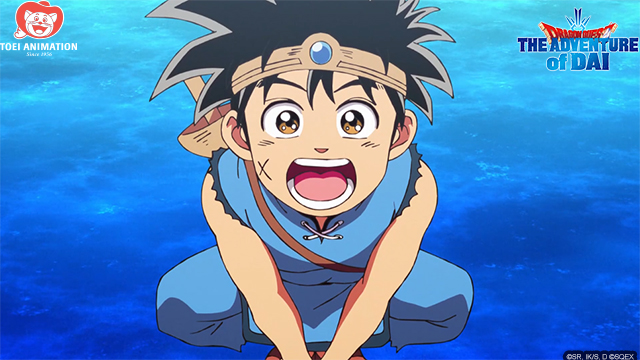
The characters crackle with charisma — outsized and Saturday morning cartoon-friendly. It’s really easy to feel jaded about something like this — an anime series that’s a reboot of another anime series that’s based on a manga that’s based on a video game series that is still running today. Going into this, I imagined I’d be able to spot the various character tropes right off the bat, and considering that the section of the anime medium devoted to telling stories that feel like video games is alive and well, the phrase “fun, but lifeless” popped into my head.
However, Dragon Quest: The Adventure of Dai is anything but. The title character is possibly the best example of this. Dai is short, energetic, and loves to train and get stronger and go on adventures. He is often naive, but never incompetent. And when he's confident, it reads as aspirational rather than delusional. He also has a brand of child-like innocence, as he wants to be a "hero" (certainly a lofty dream,) but his willingness to work for it no matter the odds makes him relatable.
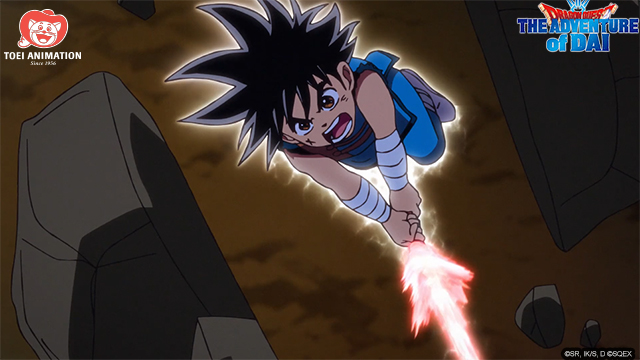
Like a JRPG line-up of characters, Dai also has a reliance on others and the tools they can provide that makes him feel a little unique. The way he and his companions inspire one another goes back to my earlier comment about strengthening the “living” aspect of the show. They play off one another, annoy one another, and support one another. In short, the way they interact goes past any idea of them having specific roles to play and takes their fairly familiar personalities and renders them into something much more watchable. Like much of The Adventure of Dai — and the Dragon Quest franchise as a whole — they’re refreshing not because of the newness of the ideas, but because of how those ideas are distributed, combined, and played with.
Meanwhile, the settings remain familiar and fantastically comfortable, while the action scenes recall both the original Dragon Quest anime and Dragon Ball. Before Akira Toriyama made Goku taller than your knee, it was always interesting to see the way he’d creatively apply size differences to fights — which is something he had to do constantly, since everyone and their mom wanted to fight Goku back then. Goku would zip around, jumping, flipping, spinning, and kicking, creating battle scenes that were equal parts ingenious and ridiculous. This led to some of the greatest pieces of Dragon Ball iconography in the entire franchise (Goku's small body bursting through Demon King Piccolo’s torso remains one of my favorite bits in all of anime). Watching Dai is similar — especially in the beginning of the series with his short knife — and it creates anticipation about what he’ll do and more importantly, how he’ll pull it off.
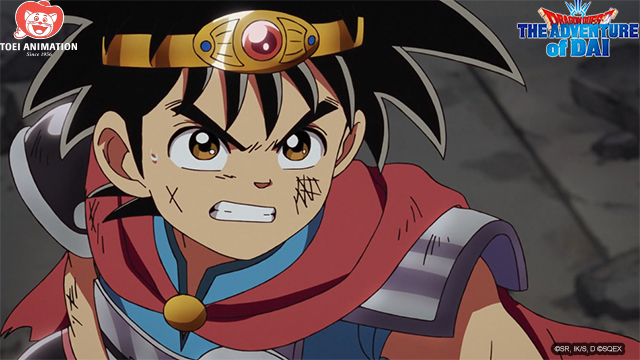
Finally, the series romps along at a pretty great pace, always giving us just enough time to smell the roses to get us invested without losing focus or momentum. A big problem with stuff being adapted from video games is that they get bogged down in trying to explain the world, rushing past certain aspects and fumbling through others as they desperately attempt to create a story-based narrative based on one that’s primarily player-based.
So you either get “Don’t worry about that,” or “Let me try and explain why the magical something or another is important. Please, kids, don’t fall asleep.” However, The Adventure of Dai excels in this, mostly by giving us the lore through the conversations of others, creating its history through the people who have lived it, rather than through any awkward expositional dump.
Dragon Quest: The Adventure of Dai shows the power of adaptation done properly. In the world of 2020 media, I find myself usually groaning when I hear, “And now, a series based on another series that’s a spinoff of that one series that is part of a broader universe which combines these other series.” It makes me wonder if franchise fantasy fiction still has a chance to feel new and truly wonderful, or if we’re just destined to be like, “Oh, look, it’s that guy from that thing” for the rest of our lives. Thankfully, The Adventure of Dai gives me a little bit of hope.
Daniel Dockery is a Senior Staff Writer for Crunchyroll. Follow him on Twitter!
Do you love writing? Do you love anime? If you have an idea for a features story, pitch it to Crunchyroll Features.
If you liked the article, do not forget to share it with your friends. Follow us on Google News too, click on the star and choose us from your favorites.
For forums sites go to Forum.BuradaBiliyorum.Com
If you want to read more anime-manga articles, you can visit our anime-manga category.

